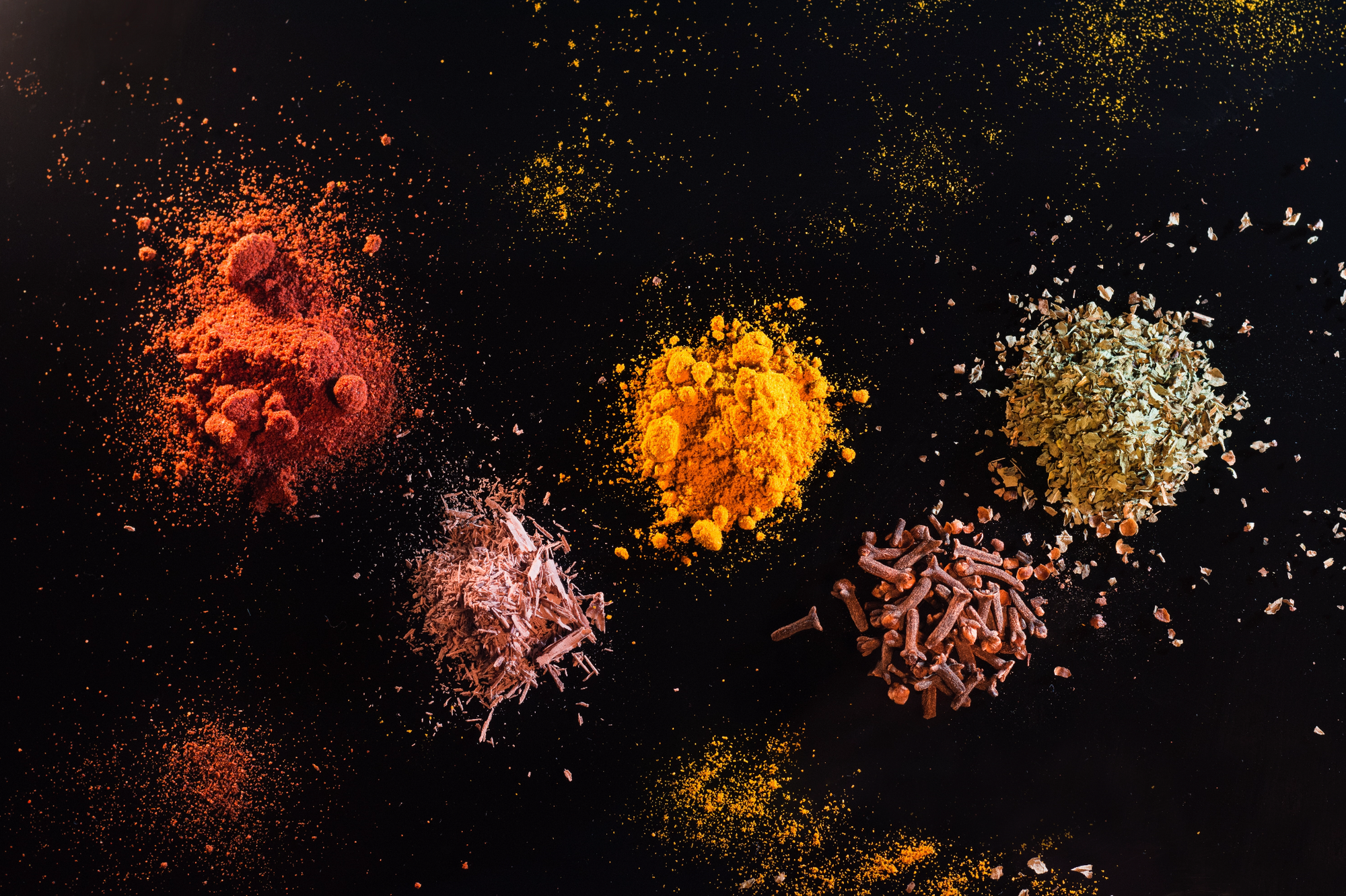
We often raise our brows when we hear the word “inflammation.” Inflammation is associated with numerous chronic illnesses, especially metabolic diseases, which have become hallmarks of the aging process.
However, the body’s inflammatory response was designed to help us. It serves a purpose and is essential for healthy living. A healthy, balanced inflammatory response is essential for staying well. It’s when that response is underactive or overactive that we’re in dangerous territory.
Together, we’ll consider ways to use natural herbs and spices to support a healthy inflammatory response.
What Role Does Inflammation Play in Our Body?
Inflammation is the body’s response to harmful substances and stimuli. When you cut your finger, your body sends white blood cells to the area to heal it. When you are sick, immune cells seek out bacteria and viruses to eliminate them. Pathogens and toxins are all targets of immune cells.
Even physical exercise causes an immune response. Small tears in your muscles that form as the result of exercise cause temporary inflammation as your muscles heal and rebuild (or as you “get your gains”).
Inflammation is a good and necessary process in our bodies, but sometimes, our body’s inflammatory response doesn’t function correctly. This can sometimes be due to chronic stress.
When we are stressed, our body goes into fight or flight mode. Two hormones, cortisol and adrenaline, are released, our heart rate quickens, and our airways expand to allow for more oxygen. At the same time, glucose is released into the bloodstream for a quick boost of energy, and the immune system and digestive system are suppressed.
Proinflammatory cytokines, chemicals that work to rid the body of toxins, are released when the inflammatory response is triggered. These cytokines cause inflammation and usually flee the scene once the intruder (AKA, the virus or injury) is eliminated.
With chronic stress, however, they hang around, creating inflammation without the presence of a real threat like a pathogen. This is referred to as chronic, low-level inflammation. Cytokine levels continuously rise, creating a cycle of chronic inflammation that can contribute to numerous illnesses and diseases.
Why Is a Healthy Inflammatory Response Important?
A healthy inflammatory response can facilitate quick recovery from workouts, help the body manage stress, compensate for the presence of occasional toxins, and speed up the healing process during injury and infection.
However, chronic inflammation from poor diet, toxin overload, chronic stress, and poor gut health can cause a series of chain reactions that can ultimately have widespread effects on the body.
9 Herbs and Spices That Support a Healthy Inflammatory Response
Ensuring your body’s inflammatory response is healthy takes a few lifestyle changes (like managing stress and avoiding known toxins), but we can also use the herbs and spices discussed below to help support our anti-inflammatory goals.
How do these ingredients fight inflammation? At a high level, some herbs and spices contain compounds that directly fight inflammation, and some do double duty, thanks to their high levels of antioxidants.
Inflammation often occurs as a by-product of cell damage caused when free radicals in the body lead to a state of oxidative stress. Antioxidants, compounds found in many plant-based ingredients, help neutralize free radicals, indirectly helping to prevent and fight unhealthy inflammation.
1. Moringa
Moringa, also known as the “Miracle Tree”, has been traditionally used in Ayurvedic medicine for millennia. Moringa is packed with essential nutrients, so much so that it is consumed as an affordable and readily available food in many regions of the world. It’s also loaded with antioxidants and even offers cognitive health benefits that can help support your brain health if you are concerned about diseases like Alzheimer’s.
Early animal studies into the effects of moringa leaf and moringa seed oil on inflammation have shown promise regarding their ability to positively influence anti-inflammatory activities in the body. In one study of rats with inflammatory arthritis, moringa leaf and seed oil successfully lowered levels of proinflammatory cytokines. Further studies are needed to see if moringa is a good treatment for joint pain in humans.
2. Turmeric
You probably know at least one friend who regularly consumes turmeric for its anti-inflammatory benefits. This golden spice is frequently used in Indian cuisine and contains a compound called curcumin that has potent anti-inflammatory benefits. Turmeric has been used in traditional medicine for decades.
One reason that curcumin is not widely used is due to its lack of bioavailability. Taking curcumin with piperine (a compound found in black pepper) can increase its bioavailability.
Curcumin is a polyphenol that has been studied extensively. In a review of available clinical trials, curcumin proved to be safe, effective, and able to modulate signaling molecules that are associated with inflammation and proinflammatory cytokines.
These studies show such significant promise for curcumin’s anti-inflammatory effects. However, further large-scale studies are needed to determine if curcumin would be an effective treatment for inflammatory conditions like osteoarthritis and inflammatory bowel disease.
3. Ginger Extract
Ginger, another common spice in Asian cuisine, is known for its anti-inflammatory and antioxidant effects. This study explored the anti-inflammatory effects of ginger on patients with rheumatoid arthritis. The results found that ginger blocked joint destruction that accompanied joint inflammation.
In addition, ginger has been used traditionally to support digestion. When you overindulge, ginger can help give you relief and avoid uncomfortable indigestion.
4. Cinnamon Extract
Besides adding a sweet, warm flavor to dishes, cinnamon is also rich in antioxidants and has anti-inflammatory properties. Early research has shown that the compounds in cinnamon extract interact with various cellular processes that are identifiable as pathways to inflammation and oxidative stress.
5. Aged Garlic
If Emeril Lagasse didn’t make you a fan of “gahlic” during his more than decade-long stint preparing savory dishes on tv, now’s your chance to jump on the garlic bandwagon.
Garlic isn't just a staple in kitchens around the world; when properly aged, its active compounds can help reduce inflammation and boost the immune system. In one study, aged garlic extract was found to prevent oxidative stress in cells by restoring the activity of antioxidant enzymes and bringing them back into normal function.
6. Clove Essential Oil
These aromatic flower buds, when turned into essential oil, are rich in eugenol, a compound with powerful anti-inflammatory capabilities. Specifically, it inhibits the production of several proinflammatory biomarkers, as evidenced in one study of clove essential oil on the skin.
It should be noted that this study considered patients who suffered from skin-related diseases that caused inflammation. This study concluded that the clove oil prevented the proliferation of dermal fibroblasts associated with diseased skin.
Research into the anti-inflammatory and calming effects of clove essential oil is still early. More research is needed to better understand how it can be used therapeutically.

7. Rosemary Essential Oil
This fragrant herb isn't just for flavor; its essential oils are also rich in antioxidants and anti-inflammatory compounds. Research is early, but in animal studies, rosemary essential oil significantly lowered the migration of inflammatory cells in controlled tests.
Rosemary is also rich in antioxidants, which can help protect cells against oxidative stress. Oxidative stress occurs when the mitochondria in worn-out cells produce more reactive oxygen species (ROS) than they should, as well as when the body comes in contact with an external stressor, like UV rays or cigarette smoke.
Antioxidants can help prevent cellular damage by shielding cells from the molecules that create oxidative stress.

8. Oregano Extract
Besides giving pizza its distinctive taste, oregano (in extract form) also features compounds that help combat inflammation. In addition to being high in antioxidants, early animal studies show that it plays a role in combating inflammation in stress-induced gastritis and hypersensitivity.

9. Sage
Sage, often used in poultry dishes, contains multiple anti-inflammatory and antioxidant compounds. Traditionally, it has been used for pain management, protection against oxidative stress, and for support during periods of viral and bacterial illness.
The traditional use of sage for throat irritation, digestive disturbances, and bronchial discomfort associated with upper respiratory infections suggest that it may support a healthy inflammatory response in these conditions, although more research is needed to confirm this usage.
How Can We Incorporate These Herbs and Spices Into Our Diets?
With so many anti-inflammatory benefits to be had, you’ll want to find creative ways to add these herbs and spices to your daily diet. With the exception of essential oils (which are not recommended for internal use), you can add them to your favorite dishes when you are cooking, especially if you are using them fresh.
Keep in mind that fresh herbs typically require different preparation and measurements than dried herbs. For instance, dried herbs may be more potent and require less per dish than fresh herbs.
Herbal extracts can be used for cooking, but you’ll need to research different ways to include them, as you won’t be able to use them in the same way as dried herbs.
Are There Any Side Effects?
While the aforementioned herbs and spices are generally well tolerated and considered safe, you shouldn’t use them if you have a known side effect to them. Signs of an allergic reaction can range from mild to severe and life-threatening.
Most side effects of herbs and spices are only experienced with higher, more concentrated doses of the particular compound.
The Bottom Line
Got stress? Then, you’ve probably got some unhealthy inflammation going on inside your body. In addition to looking for ways to support healthy stress management, you can also consider adding these herbs and spices to your daily lineup to help restore a healthy inflammatory response in your body.
The best way to get the anti-inflammatory benefits of these herbs and spices is generally to use them with consistency. Finding ways to creatively incorporate them daily will help you maximize their benefits and support your body.
Before you make any decision about your health and wellness, consider your options and speak to your healthcare provider about any current medications you take and any underlying medical conditions you might have.
To learn more about how you can support your wellness, visit our blog today.






